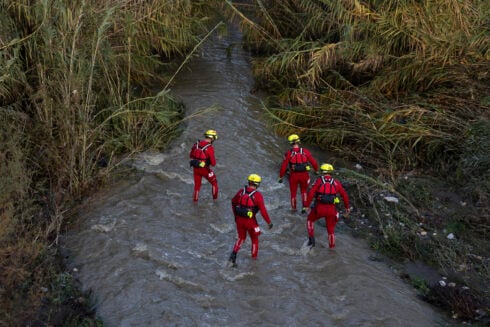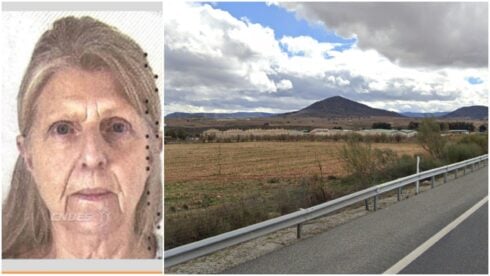By Lisa Tilley
IT has been another black week for the Spanish construction industry. As the investigation comes to a head into the deaths of six men in the Almuñécar bridge disaster of last year, the continuing deficit in safety conditions is morbidly highlighted by the fatalities of two workers in separate incidents in Granada province.
Both men died on November 9 and trade unions immediately marched on the city in protest on the following day. The unions UGT (General Worker’s Union) y CCOO (Union Confederation of Labour Committees) want immediate improvement to the lack of safety measures in place in the construction industry.
Two separate accidents took place on the same day, one in Dúrcal, another in Purullena. The first victim, a 32 year old man with the initials J.A.V.V., was driving a council lorry in a quarry in Pago del Salao in Dúrcal. The driver was working to clear rubble when the vehicle plunged down a steep embankment leaving him buried beneath a mound of earth inside his vehicle. He was already dead when rescue workers reached him at around half past five in the afternoon. The deceased worker was an employee of Dúrcal council and was said to have been well liked within the community. As yet there are no further details as to why the vehicle he was driving plummeted down the ravine.
A second disaster, involving two heavy-weight lorries, took place on the A-92 in Purullena and ended the life of a 62 year old Granadino with the initials J.A.M.R. The victim was reported to have been trapped between two vehicles which crashed when reversing whilst involved in maintenance works on the A-92. The victim’s friend advised the emergency services when the accident occurred at 6pm but nothing could be done to save the man’s life.
The incidents of the 9th of November bring to a total of thirteen the number of people who have died in construction accidents so far this year in Granada. Unions have called for urgent meetings to discuss emergency measures to confront the high accident levels which exist in the building industry in the province.
In the same week, the Ministry of Public Works submitted reports detailing the accident which ended the lives of six construction workers in Almuñécar in 2005. The men, five Portuguese and one Spanish, died when a 60 metre section of bridge collapsed and plunged 50 metres to the ground.
A year on, the shattered skeleton of the viaduct still looms over the village north of Almuñécar, whilst the trade unions are demanding that investigations be speeded up.
The judge at the helm of the inquiry had demanded the reports in order to establish the causes of the collapse of part of the viaduct on the A-7 road through Almuñécar. The two technicians responsible for investigating the case are also in possession of the accounts which contain details of the metal structures used as concrete moulds in the construction of the fated bridge.
The company responsible for the works, Estructuras y Montajes, was obliged to provide information about the construction whilst the National Centre of Metallurgical Investigations carried out tests on the components of the structure.
Definitive answers are needed to the questions of safety arising from these cases. Whether the industry heeds the results and takes a more methodical approach to the safety of the workers who risk their lives in the construction industry Granada is another matter.
Click here to read more News from The Olive Press.





